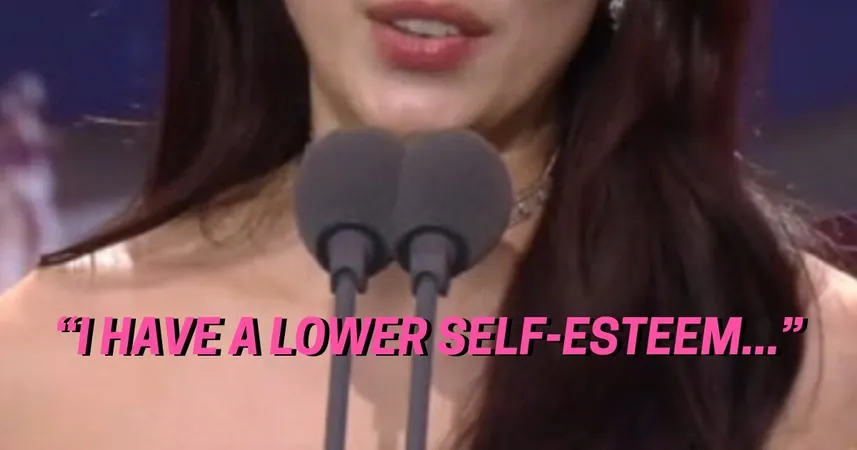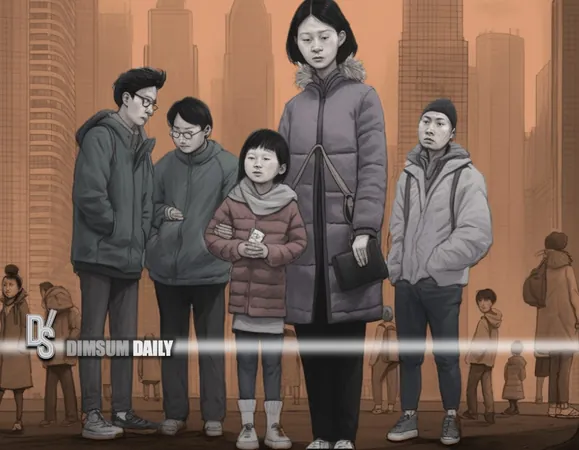
Park Shin Hye's Emotional Award Speech Sparks Outrage Over Gender Inequality in Fame
2024-12-25
Author: Sarah
Introduction
In a heart-wrenching moment at the 2024 SBS Drama Awards, renowned South Korean actress Park Shin Hye broke down in tears, expressing her gratitude to fans who stood by her despite societal pressures surrounding marriage and motherhood. This poignant scene sheds light on an enduring issue within the Korean entertainment industry—particularly the stark difference in how male and female celebrities are treated post-marriage.
The Gender Inequality Issue
Traditionally, female celebrities often face diminished popularity after publicly dating or starting families, a trend that still lingers today. Park, a leading figure in the K-Drama world, recently celebrated significant success with her performance as Kim Bit Na in the hit series *The Judge from Hell*, but that hasn’t shielded her from the harsh realities faced by many women in the industry.
Emotional Acceptance Speech
During her acceptance speech for the Directors’ Award, Park shared an emotional moment, thanking her long-standing supporters for their unwavering loyalty. "I’m so grateful for your support throughout my 21-year career," she said, her voice breaking with emotion. "I want to especially thank you for staying with me after my marriage and the birth of my child."
Personal Struggles and Support
Her candid remarks also touched on her personal struggles with self-esteem, revealing the crucial role her husband, fellow actor Choi Tae Joon, played in helping her navigate this difficult terrain. Park’s vulnerability resonated deeply with fans, prompting an outpouring of support from across the globe.
Social Media Outrage
However, while her speech garnered sympathy, it also ignited a fierce discussion on social media, particularly on platforms like X (formerly Twitter), where many expressed outrage. Critics highlighted the stark contrast in how male and female celebrities are perceived. While male actors often maintain or even enhance their appeal post-marriage, their female counterparts are frequently scrutinized and face risk of career decline. This inequality remains a troubling double standard in the entertainment industry.
Conclusion
Park Shin Hye's emotional tribute not only underscores the support she enjoys from her fans but also reflects the broader conversation around gender norms in Hollywood's Asian counterpart. Her reputation as a K-Drama icon is firmly established, and with the outpouring of love and solidarity from global audiences, it’s clear that her star is far from dimming, despite the challenges of public perception. As this narrative unfolds, many are hopeful that Park’s experience can inspire change, prompting a reassessment of how female celebrities are valued and supported in the face of personal milestones like marriage and motherhood. Her journey exemplifies resilience, proving that while societal views may take time to evolve, the unwavering bond between a star and her fans can transcend these barriers.



 Brasil (PT)
Brasil (PT)
 Canada (EN)
Canada (EN)
 Chile (ES)
Chile (ES)
 España (ES)
España (ES)
 France (FR)
France (FR)
 Hong Kong (EN)
Hong Kong (EN)
 Italia (IT)
Italia (IT)
 日本 (JA)
日本 (JA)
 Magyarország (HU)
Magyarország (HU)
 Norge (NO)
Norge (NO)
 Polska (PL)
Polska (PL)
 Schweiz (DE)
Schweiz (DE)
 Singapore (EN)
Singapore (EN)
 Sverige (SV)
Sverige (SV)
 Suomi (FI)
Suomi (FI)
 Türkiye (TR)
Türkiye (TR)